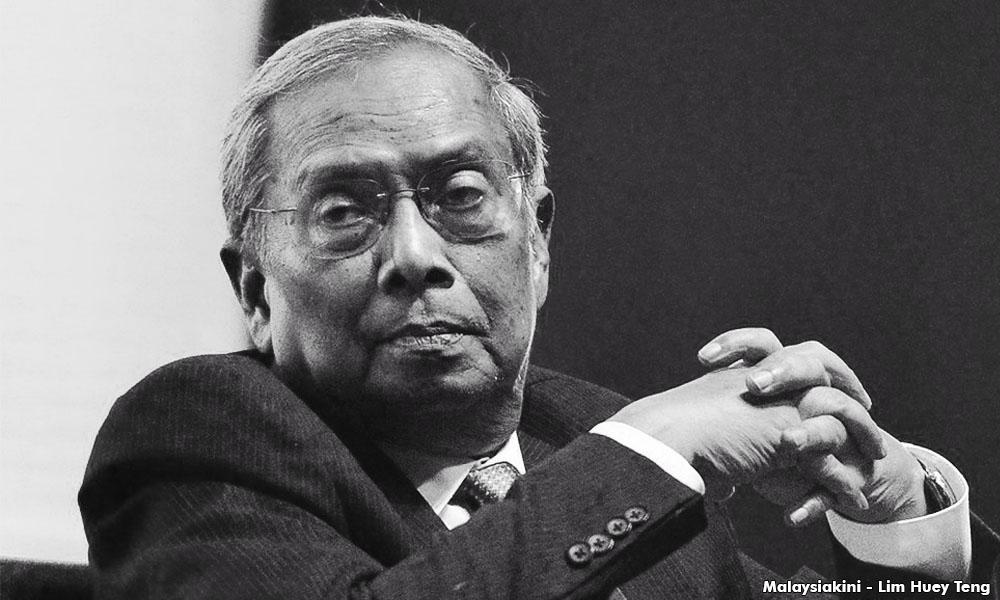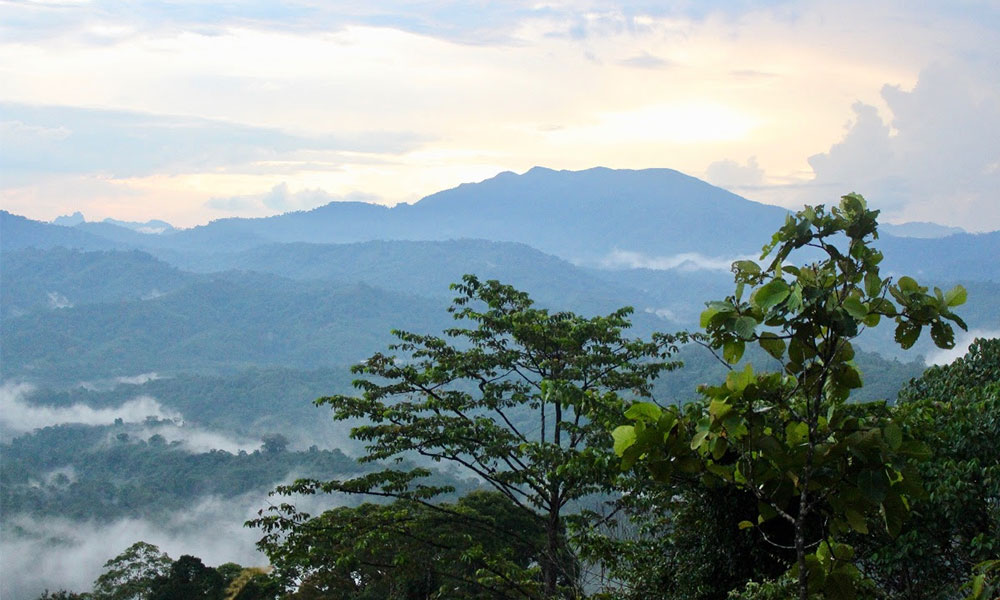INTERVIEW | Sarawak Chief Minister Abang Johari Openg had sizable shoes to fill when he assumed office after the death of his predecessor Adenan Satem in 2017, which according to Sarawak DAP chief Chong Chieng Jen may be too big for him.
Chong said Sarawakians will compare and contrast the leadership and policies announced by Adenan and Abang Johari in the upcoming state election.
The Sarawak state polls will be held in August 2021 at the latest and will be the first electoral battle in the state after the ruling coalition quit BN and rebranded itself as Gabungan Parti Sarawak (GPS).
"The people will make comparisons between Abang Johari and Adenan in the next election.
"Similarly, in the 2016 state polls, voters had compared Adenan and his predecessor Abdul Taib Mahmud, who helmed the state for 33 years until 2014," the state Pakatan Harapan chief told Malaysiakini in an interview.
It is common to see new leaders enjoy higher popularity and confidence among the public when they are fresh in office.
Another example of this was former prime minister Abdullah Ahmad Badawi, who assumed office in 2002 and led BN into the 2004 general election battlefield, winning 198 parliamentary seats. This was the largest majority that BN had won since the 1978 polls.
Likewise, Adenan was known to be the major reason behind the landslide victory of Sarawak BN in the 2016 state election, taking 72 state seats out of 82. Harapan won only 10 seats as compared to the 15 it took in the 2011 state polls.

Chong said he does not expect something similar to the Adenan factor that will impact the opposition in the next polls.
He said this is partly because the policies and plans implemented by Adenan were beneficial to the people, while his successor made grand announcements that the rakyat could not immediately feel on the ground.
"Abang Johari made flashy announcements and planned fancy projects. For example, he announced the light rapid transit (LRT) project, which later changed to the autonomous rail rapid transit (ART) system," he said.
In April 2017, Abang Johari postponed the RM10.8 billion LRT project, which planned to connect Kuching to Samarahan and Serian, as the state government had to re-channel the funds to build basic amenities for rural areas.
The LRT project was revived in May 2019, but two months later it was changed to the ART.
Chong also cited the state government's plan to build 1,300 telecommunication towers throughout Sarawak and establish a state-owned telecommunication company which he felt was not feasible.
"Some of the telco towers were erected but no telco companies want to rent them as the (rental) charge is too high.
"The state government funded a private company to collect the fees but the telco companies are reluctant to get involved in the loss-making business.
"Consequently, the state government decided to set up its own telco company. By not roping in existing telco companies, you will just have a clientele and a market for 3 million (of the Sarawak population). This is not enough to sustain your business," he added.
In conclusion, Chong said the people could not see the benefits of the policies implemented by Abang Johari as compared to the ones made by Adenan who was only in office for three years before passing away due to a heart ailment.
Since assuming the state's top post in 2014, Adenan had distanced Sarawak BN from the scandal-ridden Taib and the then prime minister Najib Abdul Razak when the 1MDB scandal first broke.
Adenan also revised the electricity tariff structure for the domestic, commercial and industrial sectors to cushion the rising cost of living.
He reduced the premium payments for agriculture and residential land, abolished payment of certain land-quit rents and tolls for bridges as well.

On the religious harmony front, he managed to assure Christians that they could use the word "Allah" in their prayers. Christians make up 40 to 45 percent of the state population.
Apart from that, Adenan's state administration recognised the Unified Examination Certificate (UEC), channelled allocation to Chinese independent high schools and banned Umno leaders from entering Sarawak.
In the 2016 state polls, he wrested five seats from DAP after the Chinese swung back their votes to BN. DAP managed to win 12 state seats in 2011 during Taib's rule.
Sarawak has 82 state seats - 36 are Dayak-majority seats (22 are predominantly Iban), 23 Malay Melanau-majority, 13 Chinese-majority and 10 are mixed demographics.
When asked about the support of the local Chinese community for Harapan, particularly DAP, Chong said the Chinese do acknowledge the need to strengthen the opposition to keep the government in check.
He also noted that a strong sentiment was building up in the Dayak community which saw a few Dayak-majority seats falling to Harapan in the 2018 general election.
Back in the 14th general election, BN was taken by surprise as it lost not only all seven Chinese-majority seats but also six Dayak-majority seats, namely Selangau, Saratok, Julau, Lubok Antu, Puncak Borneo and Mas Gading, to Harapan and independent candidates.
According to Chong, racial imbalance in the state civil service was among the reasons that fuelled unhappiness among the Dayak people.
"The Malay-Melanau consists of 40 percent of the state population, but they take up to approximately 70 percent of senior and mid-level positions in the state civil service," he said.
It was reported in October 2019 that PKR Lubok Antu MP Jugah Muyang urged the state government to correct the racial imbalance in the Sarawak civil service.
Citing a news report, the PKR lawmaker said out of 1,478 civil servants in Sarawak, 54 percent were Malay, followed by Dayak (28 percent) and Chinese (17 percent).
In the civil service Jusa group (Public Sector Superscale), 65 percent were Malay followed by a combination of Dayak and Chinese at 17 percent.

The issue of decades-old native customary rights over Sarawak land is also a problem that has yet to be resolved, Chong said, with more Dayak elites and intellectuals becoming increasingly aware of it.
"In terms of welfare, the Dayak constituencies are still inferior to that of the Malay's. We can see good basic amenities in the Malay areas but the Dayak constituencies are lagging behind," he added.
However, Chong was not sure if the Dayak sentiment in rural and semi-urban areas will translate to votes for the opposition and further allow them to win over 30 Dayak-majority seats.
He did not dismiss the possibility of GPS falling if such Dayak sentiments continue to grow.
DAP first set foot in the Borneo state in 1978 and attracted dissidents from the Sarawak United People's Party (Supp). As in the peninsula, DAP appealed to the local Chinese community and was labelled a Chinese-centric party.
Only until the recent decade did DAP see some acceptance from the Dayak community.
As for PKR, the party has been known for helping Dayak natives with land rights issues. It took PKR two decades to work with the grassroots before the party could even win a few seats in the Land of the Hornbill.
As of today, Harapan parties including Amanah are still unable to penetrate the 23 Malay-Melanau heartlands. - Mkini




No comments:
Post a Comment
Note: Only a member of this blog may post a comment.